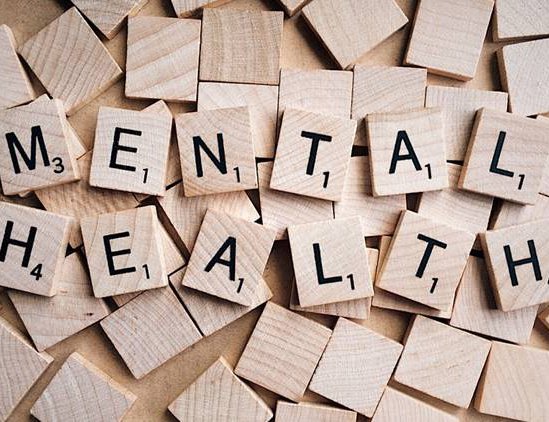
Just as we put a bandage on a cut or take antibiotics for an infection, it's important to prioritize our mental health. Yet, society often expects us to "get over" psychological wounds such as failure or rejection, without providing tools for healing. Anyone who has experienced rumination over rejection or distress over a failure understands how emotional injuries can be just as crippling as physical ones. We tend to prioritize our physical health, from maintaining dental hygiene to covering a cut to prevent infection, but what do we know about maintaining our psychological health? It's crucial to teach children about emotional hygiene, taking care of their minds and emotions with the same diligence we take care of our bodies. In reality, we often sustain more psychological injuries than physical ones, and ignoring them can have dramatic consequences for our lives and personalities.
Emotional first aid can be a powerful tool for anyone seeking to overcome emotional hurts and improve their emotional resilience. Emotional hygiene involves developing healthy habits and practices to promote emotional well-being, starting from childhood experiences and coping strategies. A critical component of emotional hygiene is creating a safe and secure environment that fosters positive emotions and reduces negative ones. This can help individuals feel more secure and less anxious, promoting healthy emotional development, including identifying and expressing feelings, taking risks, and seeking emotional support during challenges and setbacks.
Emotional distress is a natural part of life and can provide valuable information. For example, feelings of guilt can alert us to take action and resolve issues with friends or relatives, leading to better relationships. However, it's crucial not to get stuck in dark places or paralysis for too long, as this can deplete our emotional and intellectual resources. Negative emotions can consume a significant amount of our brainpower and leave us with reduced intellectual functioning and even lower IQ scores. Therefore, it's essential to be aware of these "unofficial" emotional injuries and manage them effectively to maintain optimal emotional health.
Now let’s try to analyze in what circumstances we need emotional aid:
Dealing with Loneliness
Loneliness is a subjective feeling of social isolation or lack of connection with others. It can lead to negative emotions such as sadness, anxiety, and depression as well as physical health problems such as high blood pressure and poor sleep quality. Practicing emotional hygiene can alleviate feelings of loneliness by providing tools and strategies to cope with negative emotions and build stronger social connections. For example, practicing healthy communication skills can help us better express our emotions and build more meaningful relationships. Additionally, practicing self-compassion can generate more acceptance of ourselves and our emotions, improving our overall well-being. It is important to be aware of the impact of loneliness on our mental and physical health, and to take steps to address it by building social connections and practicing self-care.
That feeling of failure
When we experience failure, we may feel a range of negative emotions such as disappointment, frustration, shame, and guilt. Failure impacts one's self-esteem and overall well-being. This is also the reason that people function below their actual potential as even a single failure makes them believe that they can’t do it.However, it is important to understand that failure is a part of life, and everyone experiences it at some point. To deal with the negative emotions associated with failure, practicing emotional hygiene can be helpful. This involves being aware of our emotions, acknowledging them, and taking steps to manage them effectively. This may include seeking support from others, engaging in self-care activities such as exercise or meditation, and reframing our perspective on failure. Instead of viewing failure as a personal flaw or a reflection of our worth, we can view it as an opportunity for growth and learning. By reframing our mindset and practicing emotional hygiene, we can better cope with the negative emotions associated with failure and use it as a stepping stone towards personal and professional growth.
The agony of Rejection
Experiencing rejection can be a deeply painful and distressing experience that often leads to negative thoughts and emotions about oneself. It can cause us to obsess over our faults and shortcomings, leading to feelings of worthlessness and a damaged self-esteem. These negative feelings can make us more vulnerable to stress and anxiety, which can in turn exacerbate the pain of rejection and prolong the recovery process. To overcome rejection, it is important to protect your self-esteem by practicing self-compassion and cultivating healthy psychological habits. This can involve challenging negative self-talk, replacing self-criticism with self-affirmation, and surrounding yourself with supportive people who value and appreciate you for who you are.
Breaking the cycle of Rumination
Rumination is the habit of dwelling on negative thoughts and replaying unpleasant scenes in your head for an extended period. This can have serious consequences, leading to conditions such as clinical depression, alcoholism, eating disorders, and even cardiovascular disease. To break this habit, it's important to engage in distraction techniques. Even a short two-minute distraction can help reduce the urge to ruminate and shift your focus away from negative thoughts. By practicing distraction and redirecting your thoughts towards more positive ones, you can protect your mental health and well-being.
Onwards to reboot your emotional health
Pay attention to emotional pain, recognize it when it happens and work to treat it before it feels all-encompassing. If a rejection, failure, or bad mood Is not getting better, it means you’ve sustained a psychological wound and one needs to take an action. Not accepting that you have been hurt and ignoring or suppressing your emotions can make the healing process difficult. Sharing your experience with your support system can help one gain perspective, receive validation, and feel less alone.
Redirect your gut reaction of despair when you fail. Prevent the emotional spiral by ignoring the gut-level feeling of helplessness post-failure, and make a list of factors that you can control you to help you try again. Find meaning in life and don’t let excessive guilt linger. It’s good to reflect and learn what you might have gained from the loss. One of the best ways to resolve lingering guilt is to offer an effective apology which should have empathy in it.
Monitor and protect your self-esteem. When you feel like putting yourself down, take a moment to be compassionate to yourself. Self-esteem is like an emotional immune system that buffers you from emotional pain and your emotional resilience. When one is feeling self-critical, imagine a friend being bad about themselves and what advice you would give them to support. Apply the same advice for yourself.
When negative thoughts are taking over, disrupt them with positive distractions. For instance, engaging in physical activity, connect with people who uplift you, going out for socialization, watching a movie, or playing a game, being creative, practice mindfulness and find a cause you are passionate about and look for volunteer opportunities. Moreover, positive distractions are not a way to avoid or ignore negative emotions, but rather a way to provide relief and create balance in your life.
Arit Narang Bastola is the director of the Chaitanya Institute for Mental Health, Nepal.
- Mental Health Challenges
- Apr 08, 2024
- Mind Your Plate
- Jun 07, 2021
- The Simple Act Of Kindness Could Promote Both Mental And Physical Health.
- Oct 10, 2020













